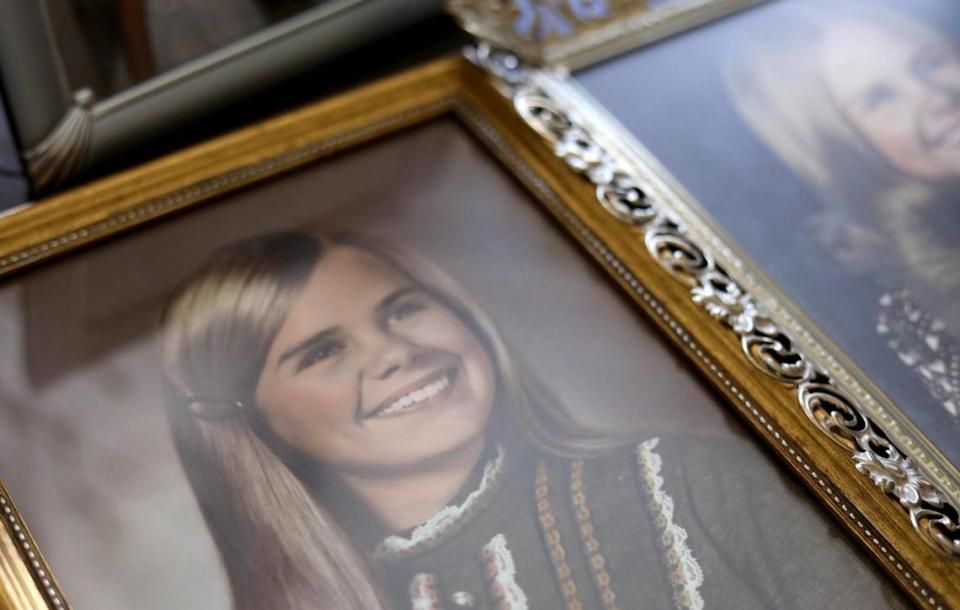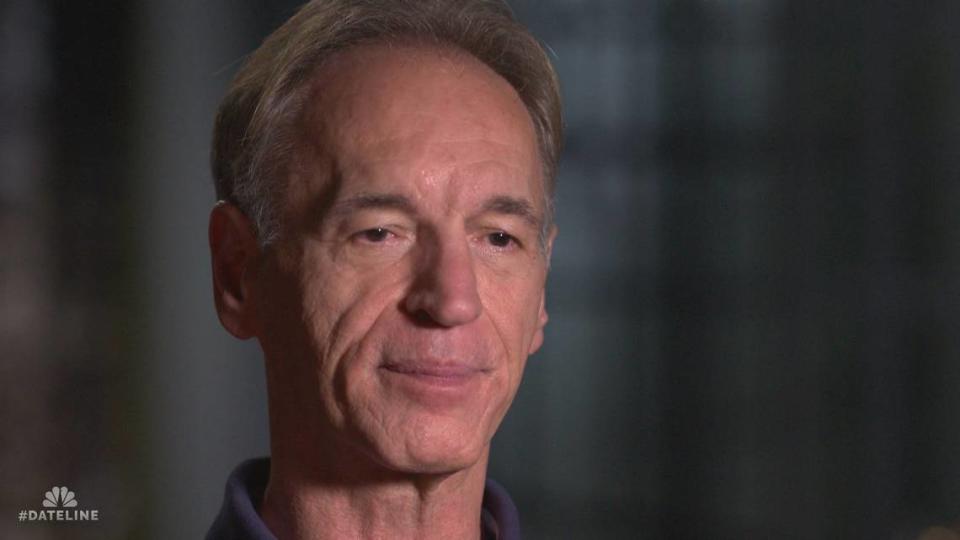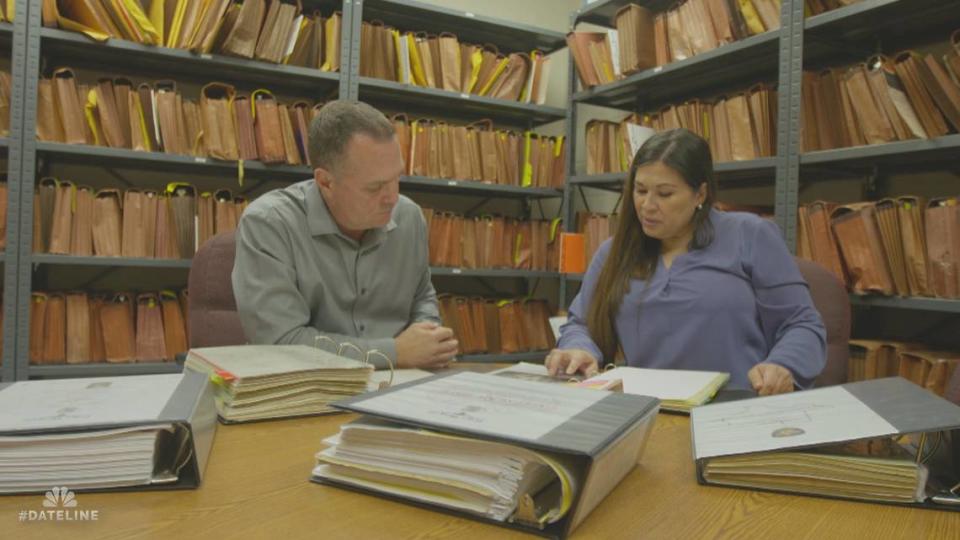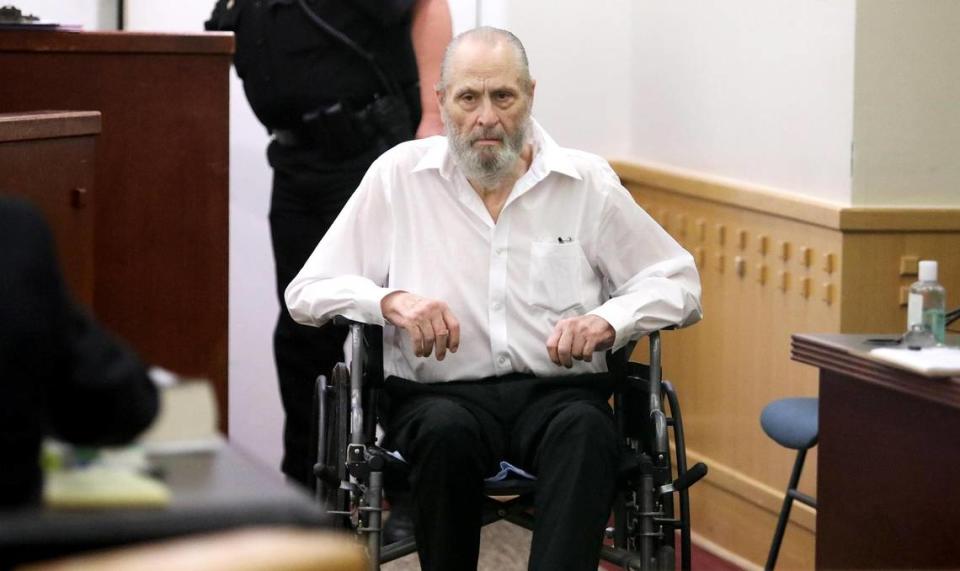Dateline episode features 1974 murder of Fort Worth teen Carla Walker
Five months after her killer was sentenced in a Fort Worth courtroom, Carla Walker’s story will be featured on an episode of NBC’s Dateline on Friday night.
Carla was 17 years old when Glen McCurley kidnapped, raped and strangled her in 1974. Her family waited for answers for decades until DNA technology and a dogged police investigation led to the conviction of McCurley. In August, McCurley pleaded guilty to the capital murder of Carla and was sentenced to life in prison.

Carla’s boyfriend at the time of her murder, Rodney McCoy, will appear on Dateline’s episode to talk about the night he saw his high school sweetheart for the last time. The episode airs at 8 p.m. Central time.
At McCurley’s trial in August, McCoy was the first witness to testify. He described the way Carla always made him smile, and how the two started dating in high school. He also told the courtroom in detail about the seconds that changed his life when Carla was kidnapped right in front of him.
On Feb. 16, 1974, McCoy and Carla attended the Western Hills High School Valentine’s Day Dance — a night that should have been a quintessential teenage memory. Carla wore a powder blue dress and the flowered corsage McCoy had pinned to the fabric.

After the dance, Carla and McCoy parked in the Ridglea Bowl parking lot so she could use the bathroom. In his mom’s 1969 LTV, they started to kiss. Carla leaned against the passenger side door, her purse behind her head, and McCoy leaned over top of her. Suddenly, the passenger door yanked open.
McCurley was on the other side of the door. As McCoy and Carla fell from the car, McCurley beat McCoy over the head with a .22 Ruger pistol. McCoy, blood running down his face, could not tell if Carla was pulled from the car, but knew she suddenly was not in the seat next to him. McCurley pointed the pistol at McCoy and pulled the trigger three times. The gun did not go off. Bleeding and losing consciousness, McCoy saw the abductor start to pull Carla away.
“Carla turned her face to me and — I can visualize it — and said, ‘Rodney go get dad. Go get my dad,’” McCoy said at the trial. “Those were the last words I heard from Carla.”
Carla’s body was found three days later in a culvert near Benbrook Lake. She had been raped, beaten and strangled.
Carla’s brother, Jim Walker, was also interviewed on the Dateline episode, titled “After The Dance.” Jim spent the 47 years after his sister’s murder seeking answers. He lived in the house that he and his siblings grew up in — walking through the same front door McCoy pounded on the night Carla was taken. For years, he held onto the possibility that someone might knock on his door at 3 a.m. and confess to his sister’s death.
Carla Walker investigation
Fort Worth police Detectives Leah Wagner and Jeff Bennett also spoke with NBC’s Dateline for the episode. Wagner and Bennett worked tirelessly on Carla’s case and utilized forensic genealogy and new DNA extraction technology to zero in on McCurley as Carla’s killer. The process cost tens of thousands of dollars, and Wagner and Bennett coordinated funds for the testing themselves through donations from NBC and producers of “The DNA of Murder,” who ran an episode about Carla on the Oxygen show.
Bennett also created the FWPD Cold Case Support Group, a nonprofit foundation dedicated to solving Fort Worth’s unsolved murders. Donations can be made at the nonprofit’s website at fwpdcoldcasesupport.org.

McCurley was interviewed by police in the 1974 investigation of Carla’s murder. When McCurley beat McCoy with his .22 Ruger, the gun’s magazine was dislodged and fell into the parking lot. The magazine was one of the few pieces of evidence police had to go on at the time, and they tracked sales of Rugers in the area. McCurley was one of those buyers.
On April 3 of that year, according to an affidavit, he told detectives his Ruger had been stolen six weeks before, around the same time of Carla’s murder. He also explained his wife was out of town and that he was not working the night of Feb. 16 or at any time on Feb. 17. He was not questioned again by police until nearly 50 years later.
From 2018 to 2020, renewed interest in the case lead to a breakthrough.
In 2018, a North Richland Hills resident who goes by Vincent Strange aired an episode about Carla on his podcast, “Gone Cold.” The episode inspired Dianne Kuykendall and Kathleen Barnett, friends of the Walker family, to pitch Carla’s story to producers for Paul Holes — the “DNA of Murder” detective.
Wagner and Bennett, who had recently reopened Carla’s case and been interviewing dozens of witnesses and friends, struck their deal with Holes to pay for the advanced DNA testing. A DNA profile was created and analyzed by Othram, a forensic genealogy lab based in a Houston suburb, and the Serological Research Institute out of Richmond, California. The DNA profile was eventually matched to a DNA sample police obtained from McCurley — first from a McDonald’s straw pulled from McCurley’s trash and then from a direct DNA sample that McCurley consented to.
McCurley was arrested on Sept. 21, 2020, at his Fort Worth home. McCurley lived near the Walkers’ house — his sons went to the same school Carla attended, and Jim Walker attended Western Hills High School at the same time one of McCurley’s sons did.
Video confession
During the trial, McCurley initially pleaded not guilty to the murder. That changed on Aug. 24, the day after Tarrant County prosecutors showed footage of McCurley’s interview with detectives Wagner and Bennett, in which he confessed to killing the 17-year-old.
For the first hour of the three-hour interview, McCurley denied knowing Carla or having anything to do with her murder. However, when detectives confronted him about the DNA evidence, he eventually confessed. He told the Fort Worth detectives that he “just got carried away” when he strangled and killed Carla.

In the video interview, McCurley told detectives he was drinking whiskey and beers that Saturday night and driving around the town. At first, he claimed he saved Carla from McCoy and the two had consensual sex. He later admitted this was not true.
“I took advantage of her, I guess,” McCurley said during the interview. “I choked her to death, I guess. I didn’t beat her up and all that kind of crap.”
He told detectives he got scared that she “would tell on me.”
“I’m guilty,” he says in the interview. “I guess for what happened to that little girl.”
“Are you guilty of raping her and killing her?” Wagner asks in the interview.
“I guess,” he says.
The next day, minutes after day three of the trial began, McCurley told his attorneys he wanted to change his plea to guilty. The judge sentenced him immediately and the trial ended.
After McCurley was sentenced, the courtroom was filled with people hugging one another and wiping their eyes.

When asked how he felt after the trial, Jim Walker said, “Peaceful. Peaceful. Peaceful.”
“We’re glad and happy, and I feel happy for our community,” he said. “I feel sadness for the McCurleys that are survivors of this. But overall, I feel peaceful.”
Cindy Stone, Carla’s sister, said at the time the reality of McCurley’s guilty plea had not sunk in yet. She stood by the elevators after the trial, clutching a gold-framed photo of Carla.
“But what I do feel is relief,” she said.

